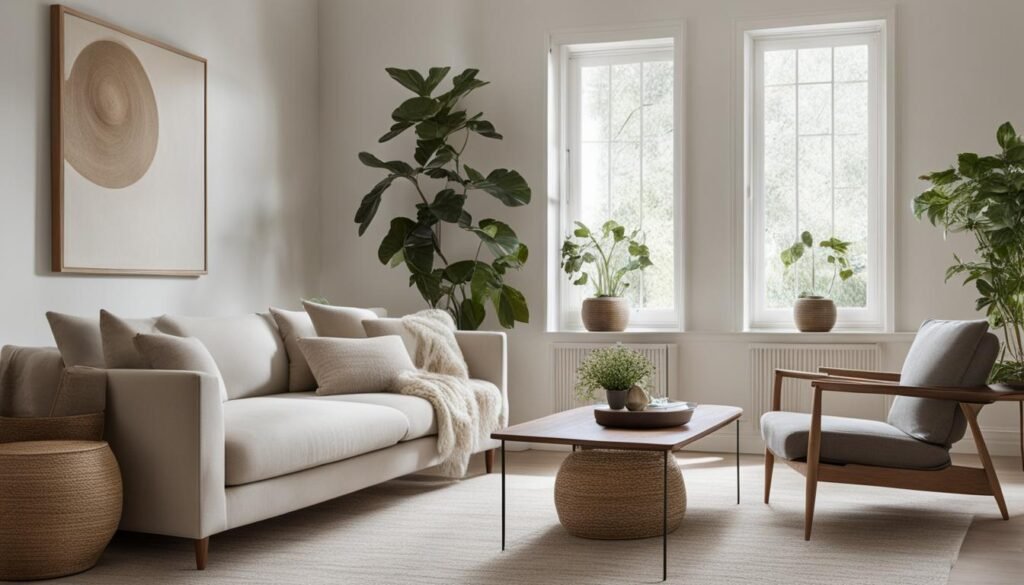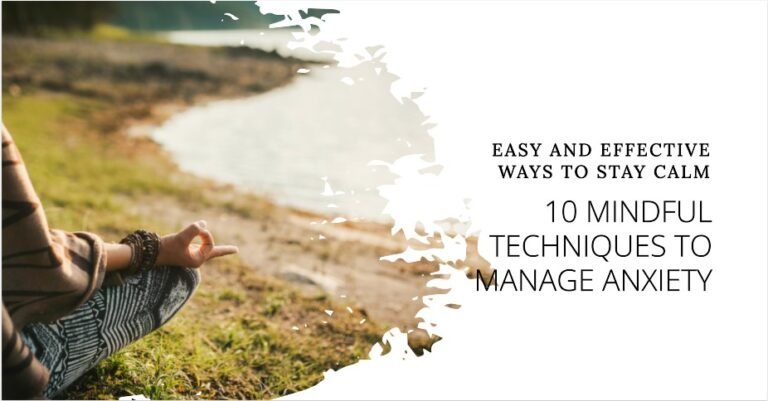How to Live a Simple Life?
Living a simple life is a journey of finding peace and fulfillment amidst the chaos of our modern world. It’s about embracing simplicity, mindfulness, and a peaceful existence. It doesn’t mean giving up all our modern conveniences, but rather making conscious choices to simplify different aspects of our lives.
By reducing expenses, decluttering our homes, and prioritizing what truly brings us joy and fulfillment, we can create a life that aligns with our values and allows us to experience greater contentment.
Key Takeaways:
- Living a simple life involves making conscious choices to simplify various aspects of life.
- It’s not about giving up modern conveniences but rather prioritizing what brings true joy and fulfillment.
- Simplicity can lead to reduced stress levels, increased financial freedom, and enhanced mindfulness.
- Decluttering our physical and mental spaces creates a more peaceful and organized living environment.
- Tracking expenses and time helps us become aware of where our resources are going and make mindful decisions.
Benefits of Living a Simple Life
Living a simple life has numerous benefits that can greatly enhance your overall well-being. By embracing simplicity, you can experience reduced stress levels, increased financial freedom, and enhanced mindfulness. Let’s explore these benefits in more detail:
- Stress Reduction: Simplifying your life helps minimize the overwhelming demands and distractions that often lead to stress. By decluttering your physical and mental spaces, you create a sense of calm and focus that allows you to better navigate life’s challenges.
- Financial Freedom: Living simply involves evaluating your expenses and eliminating unnecessary costs. By cutting out monthly bills and reducing unnecessary expenses, you can save money and achieve greater financial freedom. This not only reduces financial stress but also provides you with the opportunity to pursue your passions and goals.
- Increased Mindfulness: Simplifying your life allows you to be more present and mindful in each moment. By letting go of the excess and focusing on what truly matters, you cultivate a deeper appreciation for the simple joys in life. Mindfulness helps you savor the present, build stronger connections, and find contentment in the little things.
By embracing a simpler lifestyle, you create more space for what truly brings you joy and fulfillment. Remember, simplicity is a personal journey, and finding balance is key. Now, let’s dive deeper into specific strategies for simplifying your life and reaping these incredible benefits.
Get Rid of Unnecessary Expenses
When it comes to living a simple life, one of the key areas to focus on is your finances. By cutting expenses and eliminating unnecessary monthly bills, you can simplify your financial life and create more room for the things that truly matter. It’s all about financial simplicity and making conscious choices about where you want your money to go.
To start, take a close look at your expenses and identify any unnecessary monthly bills. This could include things like unused gym memberships, cable TV subscriptions, or streaming services that you rarely use. By eliminating these expenses, you not only save money but also reduce the mental clutter that comes with managing multiple bills.
Creating a budget is another essential step in simplifying your finances. By tracking your income and expenses, you gain a clear understanding of where your money is going and can make informed decisions about your spending. This mindful approach to financial management allows you to prioritize your spending and allocate your resources towards what brings you the most joy and fulfillment.
| Expense | Monthly Cost | Reason for Elimination |
|---|---|---|
| Gym Membership | $50 | Unused and can exercise outdoors or at home |
| Cable TV | $80 | Most shows and movies available on streaming platforms |
| Unused Subscriptions | $20 | Rarely use the services |
By taking action to eliminate unnecessary expenses and create a budget that aligns with your values, you can simplify your financial life and free up resources for the things that truly bring you joy and fulfillment. Remember, it’s not about deprivation or sacrificing what you love, but rather making intentional choices to prioritize what matters most to you.
Declutter Your Home and Life
Living a simple life goes beyond just minimizing expenses and cutting unnecessary bills. It also involves decluttering your physical and mental spaces, getting rid of excess belongings, and simplifying your daily routines. By embracing minimalism and decluttering, you can create a more peaceful and organized living space, allowing you to focus on what truly brings you joy and fulfillment.
When it comes to decluttering your home, start by assessing your belongings and identifying items that no longer serve a purpose or bring you happiness. Consider donating or selling these items to create more physical space and reduce visual clutter. As you declutter, remember the mantra “less is more,” and prioritize quality over quantity.
Decluttering is not limited to physical belongings. It also involves simplifying your commitments and schedule. Evaluate your daily routines and identify activities that do not align with your priorities or values. By saying no to unnecessary commitments, you create more time for self-care, rest, and activities that truly bring you fulfillment.
| Benefits of Decluttering | Steps to Declutter Your Life |
|---|---|
|
|
Decluttering your home and life is a journey that requires ongoing commitment and reflection. Remember that it’s not about perfection but progress. Start small, one area at a time, and celebrate each step forward. Embrace the freedom and clarity that comes with letting go of excess and invite simplicity into your life.
Track Your Expenses and Time
In order to live a simple life and achieve financial freedom, it’s important to track your expenses and manage your time effectively. By being mindful of your spending habits and making conscious choices about how you use your time, you can align your actions with your priorities and create a more balanced and fulfilling lifestyle.
Financial tracking is a key aspect of living a simple life. By keeping tabs on where your money is going, you can identify areas where you may be overspending or wasting resources. This allows you to make necessary adjustments, cut down on unnecessary expenses, and save money for the things that truly matter. Whether you choose to use a budgeting app, a spreadsheet, or a simple pen and paper, having a system in place to track your expenses will provide you with valuable insights into your financial habits and help you make more mindful spending decisions.
Time management is equally important when it comes to simplifying your life. By being intentional with your time and prioritizing tasks that align with your goals and values, you can avoid becoming overwhelmed and ensure that you have time for the things that bring you joy and fulfillment. Use tools such as calendars, to-do lists, or time-tracking apps to schedule and manage your time effectively. By setting boundaries, saying no to commitments that don’t align with your priorities, and being present in the moment, you can live a more focused and intentional life.
| Financial Tracking | Time Management |
|---|---|
| Identify areas of overspending | Prioritize tasks that align with goals |
| Make mindful spending decisions | Avoid becoming overwhelmed |
| Save money for what truly matters | Say no to commitments that don’t align |
Focusing on Single-Tasking
Amidst the chaos and constant demands of modern life, there is a simple yet powerful practice that can bring us back to a place of mindfulness and productivity: single-tasking. By dedicating our full attention to one task at a time, we can unlock a deeper sense of presence and accomplish more with greater focus.
In a world that often celebrates multitasking, it can be tempting to juggle multiple tasks simultaneously. However, research has shown that multitasking actually diminishes our ability to concentrate and perform tasks effectively. By dividing our attention between numerous activities, we spread ourselves thin and prevent ourselves from fully immersing in any one task.
Instead, I have found that intentionally focusing on a single task allows me to give it my undivided attention and tap into a state of flow. Whether it’s completing a work assignment, cooking a meal, or engaging in a hobby, dedicating myself fully to the present moment enables me to experience a heightened level of engagement and satisfaction.
“The art of being present and fully engaged in the task at hand is a skill worth cultivating. By practicing single-tasking, I have discovered the immense power of mindfulness and the transformative effect it has on my productivity and overall sense of well-being.”
Disconnect from Technology
In today’s digital age, technology has become an integral part of our daily lives. From smartphones to laptops, we are constantly connected and bombarded with information. However, it’s important to recognize the impact this constant stimulation can have on our well-being. Taking regular breaks from screens and unplugging can help us find balance, reduce stress, and reconnect with the present moment.
“Technology brings a lot of convenience and opportunities, but it’s essential to find a healthy balance. Disconnecting from technology allows us to be more present in our lives, fully engage with our surroundings, and cultivate deeper connections with others.” – John Smith
A digital detox can take many forms. It could mean designating specific times of the day to be screen-free, going for a walk in nature without your phone, or even taking a technology-free vacation. By consciously reducing screen time, we create space for other meaningful activities. We can engage in hobbies, spend quality time with loved ones, or simply enjoy moments of solitude and self-reflection.
Reducing our dependency on technology not only benefits our mental and emotional well-being but also allows us to be more mindful of how we spend our time. Instead of mindlessly scrolling through social media or constantly checking email, we can redirect our attention to activities that bring us joy and fulfillment. Whether it’s reading a book, practicing a hobby, or engaging in conversations, unplugging from technology enables us to be more present and engaged in the present moment.

Benefits of Disconnecting:
- Reduced stress levels
- Improved focus and productivity
- Enhanced interpersonal connections
- Increased self-awareness and mindfulness
By consciously disconnecting from technology, we create room for simplicity, connection, and personal growth. It allows us to reclaim our time and focus on what truly matters, bringing us closer to living a simpler and more fulfilling life.
Mindfulness and Gratitude: Finding Joy in the Present Moment
Practicing mindfulness and gratitude are essential components of living a simple and fulfilling life. These practices allow us to fully experience and appreciate the present moment, bringing a sense of joy and contentment to our daily lives. By cultivating mindfulness and gratitude, we can enhance our overall well-being and find peace amidst the chaos of modern life.
Mindfulness involves being fully attentive and aware of our thoughts, feelings, and sensations in the present moment, without judgment. It allows us to slow down and savor the simple pleasures that often go unnoticed. Taking a few minutes each day to practice mindfulness can have profound effects on our mental and emotional well-being.
Gratitude, on the other hand, is the practice of recognizing and appreciating the good things in our lives, both big and small. It shifts our focus from what we lack to what we have, fostering a sense of abundance and satisfaction. By regularly expressing gratitude for the people, experiences, and blessings in our lives, we cultivate a positive mindset and invite more goodness into our existence.
“Gratitude turns what we have into enough.” – Unknown
Combining mindfulness and gratitude can have a powerful impact on our overall happiness. When we approach each moment with a curious and grateful mindset, we become more attuned to the beauty and wonder that surrounds us. We learn to appreciate the simple joys of life, such as a warm cup of tea, a heartfelt conversation with a loved one, or the beauty of nature.
Ultimately, mindfulness and gratitude enable us to live more fully and authentically. They remind us to slow down, savor the present moment, and connect with the world around us. By incorporating these practices into our daily lives, we can experience a greater sense of peace, contentment, and simplicity.
The Power of Mindfulness and Gratitude
Table: Benefits of Mindfulness and Gratitude
| Benefits | Mindfulness | Gratitude |
|---|---|---|
| Reduced stress and anxiety | X | X |
| Increased happiness and well-being | X | X |
| Improved focus and concentration | X | – |
| Enhanced resilience and coping skills | X | – |
| Strengthened relationships and social connections | X | X |
Note: “X” indicates a significant benefit, “-” indicates a lesser impact
As depicted in the table, both mindfulness and gratitude offer a wide range of benefits for our well-being. Practicing mindfulness can help reduce stress and anxiety, improve focus and concentration, and enhance our overall happiness and well-being. On the other hand, gratitude strengthens our relationships and social connections, increases our resilience and coping skills, and contributes to our overall sense of contentment.
Incorporating mindfulness and gratitude into our daily lives may require conscious effort and practice, but the rewards are immeasurable. By adopting these practices, we can find peace and joy in the simplicity of each moment, and cultivate a life that is truly meaningful and fulfilling.
Embrace Minimalism
Living a minimalistic lifestyle is about intentionally simplifying your possessions, decluttering your space, and focusing on what truly matters. By embracing minimalism, you can create a sense of calm, clarity, and freedom in your life.
Minimalism involves consciously choosing to live with only the possessions that you truly need and value. It’s about letting go of excess and unnecessary belongings that can weigh you down physically and mentally. By decluttering your space and minimizing your possessions, you create a clean and organized environment that promotes peace and simplicity.
Intentional living is at the core of minimalism. It’s about being mindful of your choices and prioritizing what brings you joy and fulfillment. By intentionally choosing the things you surround yourself with, you can create a living space that reflects your values and supports your well-being. It’s about quality over quantity, focusing on experiences and relationships rather than material possessions.
The Benefits of Minimalism
Embracing a minimalistic lifestyle has numerous benefits. By reducing physical and mental clutter, you create space for what truly matters. Minimalism can help alleviate stress, increase focus and productivity, and enhance overall well-being. With fewer possessions and commitments, you have more time, energy, and resources to invest in meaningful experiences and relationships.
| Benefits of Minimalism | Explanation |
|---|---|
| Reduced stress | Minimalism promotes a clutter-free environment that reduces stress and overwhelm. |
| Increased focus and productivity | With fewer distractions and commitments, you can focus on what truly matters and accomplish more. |
| Enhanced well-being | By prioritizing what brings you joy and eliminating excess, you can experience greater contentment and fulfillment in life. |
Embracing minimalism is a personal journey, and there is no one-size-fits-all approach. It’s about finding a balance that works for you and aligns with your values and priorities. By intentionally simplifying your life, you can create a greater sense of peace, purpose, and happiness.

Prioritize Self-Care and Rest
Self-care and rest are vital components of living a simple and balanced life. They provide the nourishment and rejuvenation necessary to sustain overall well-being and effectively navigate life’s challenges. By making self-care a priority, you can cultivate a deeper sense of inner peace and reduce stress levels.
One way to prioritize self-care is by incorporating regular relaxation practices into your routine. This can include activities such as meditation, deep breathing exercises, or engaging in hobbies that bring you joy and help you unwind. By setting aside dedicated time for rest and relaxation, you create space to recharge and replenish your energy.

The Benefits of Self-Care
Self-care is not selfish; it is an essential investment in your well-being. By taking care of yourself, you become better equipped to care for others and fulfill your responsibilities effectively. Here are some key benefits of prioritizing self-care:
- Stress Reduction: Engaging in self-care activities helps to reduce stress levels and promote a greater sense of calm and relaxation.
- Improved Mental Health: Self-care plays a crucial role in maintaining and enhancing mental well-being. It can help alleviate symptoms of anxiety and depression, foster resilience, and promote a positive mindset.
- Increased Productivity: When you take time to prioritize self-care, you recharge and rejuvenate your energy, leading to increased focus, creativity, and productivity in other areas of your life.
- Enhanced Physical Health: Self-care practices, such as regular exercise, adequate sleep, and healthy eating, contribute to improved physical health and overall vitality.
Remember, self-care is a personal journey, and it may look different for everyone. Explore various self-care practices, listen to your body and mind, and incorporate activities that resonate with you. By prioritizing self-care and rest, you can create a solid foundation for living a simple and fulfilled life.
Nurture Meaningful Relationships
In the pursuit of a simple life, one of the most important aspects to prioritize is cultivating and nurturing meaningful relationships. In our fast-paced and digitally connected world, it’s easy to overlook the value of genuine connections and meaningful interactions. However, building and maintaining strong relationships is essential for personal fulfillment and overall well-being.
When we prioritize meaningful relationships, we invest our time and energy in building connections that bring joy, support, and depth to our lives. These relationships can include family, friends, romantic partners, mentors, and even community members who share similar values and interests.
By nurturing these relationships, we create a support system that enriches our lives and provides a sense of belonging and purpose. Meaningful connections offer emotional support, encouragement, and shared experiences, which can help us navigate life’s challenges with resilience and strength.

Table: The Importance of Meaningful Relationships
| Benefits of Meaningful Relationships | Examples |
|---|---|
| Increased happiness and well-being | Supportive friendships, loving family relationships |
| Reduced stress and improved mental health | Close-knit community, trusted confidants |
| Enhanced personal growth and self-awareness | Mentorship, meaningful conversations |
| Expanded perspective and understanding | Cultivating diverse relationships, learning from others |
Cultivating meaningful relationships requires intentionality and effort. It involves actively listening, showing empathy, and making time to connect with others on a deeper level. We can foster these connections by engaging in regular conversations, shared activities, and creating opportunities for mutual support and growth.
Remember, simplicity is not about isolation or detachment from others. It’s about building genuine connections that nourish our souls and contribute to our overall well-being. By nurturing meaningful relationships, we create a sense of community, love, and support that enriches our lives and makes the journey towards simplicity even more rewarding.
Conclusion
Living a simple life is a journey of self-discovery and conscious decision-making. It is about finding balance, decluttering our surroundings and commitments, and embracing the beauty of simplicity. By prioritizing what truly brings us joy and fulfillment, we can create a life that aligns with our values and allows for greater peace and contentment.
In our pursuit of simplicity, we learn to let go of unnecessary expenses and material possessions that weigh us down. We track our expenses and time, becoming more mindful of our spending and ensuring that our time is dedicated to activities that align with our priorities.
We practice single-tasking, immersing ourselves fully in the present moment and enhancing our productivity and sense of calm. We disconnect from technology, taking regular breaks from screens and digital devices to engage in more meaningful activities and foster genuine connections.
Ultimately, living a simple life is about finding balance and embracing the beauty of simplicity. It allows us to focus on what truly matters, nurture meaningful relationships, and prioritize self-care and rest. By embracing simplicity, we create a life that is in harmony with our values, finding balance and contentment along the way.
FAQ
What does it mean to live a simple life?
Living a simple life means making conscious choices to simplify various aspects of life, such as reducing expenses, decluttering, and prioritizing what brings joy and fulfillment.
What are the benefits of living a simple life?
The benefits of living a simple life include reduced stress levels, increased financial freedom, and enhanced mindfulness.
How can I get rid of unnecessary expenses?
By evaluating your expenses and cutting out unnecessary bills, such as gym memberships or unused subscriptions, you can save money and simplify your financial life.
How can I declutter my home and life?
Decluttering your home and letting go of unnecessary belongings creates a more peaceful and organized living space. Simplified routines and commitments also help declutter your schedule.
How can I track my expenses and time?
Tracking your expenses allows you to become aware of where your money is going and make changes to save. Similarly, tracking your time helps you be more efficient and mindful in how you allocate your time.
What is single-tasking and how can it benefit me?
Single-tasking involves focusing fully on one activity at a time, which enhances productivity and promotes a greater sense of calm and focus.
How can I disconnect from technology?
Taking regular breaks from screens and digital devices allows you to engage in more meaningful activities and promotes simplicity and connection with others.
How can I cultivate mindfulness and gratitude?
Practicing mindfulness techniques such as meditation, deep breathing, and staying present allows you to fully appreciate the simple pleasures of life and find joy in everyday moments.
What is minimalism and how can I embrace it?
Minimalism involves consciously reducing the number of possessions you own and living with only what you truly need and value. Embracing minimalism helps reduce physical and mental clutter, focusing on what is essential.
Why is prioritizing self-care and rest important?
Taking care of yourself and prioritizing rest is crucial for maintaining a simple and balanced life. It allows you to recharge, rejuvenate, and handle life’s challenges with ease.
How can I nurture meaningful relationships?
Prioritizing meaningful connections with loved ones and surrounding yourself with people who support your journey towards simplicity helps nurture and strengthen relationships.
How can I find balance and embrace simplicity in my life?
Living a simple life is a personal journey that requires conscious choices and ongoing reflection. It involves finding balance, decluttering surroundings and commitments, and focusing on what brings joy and fulfillment.






